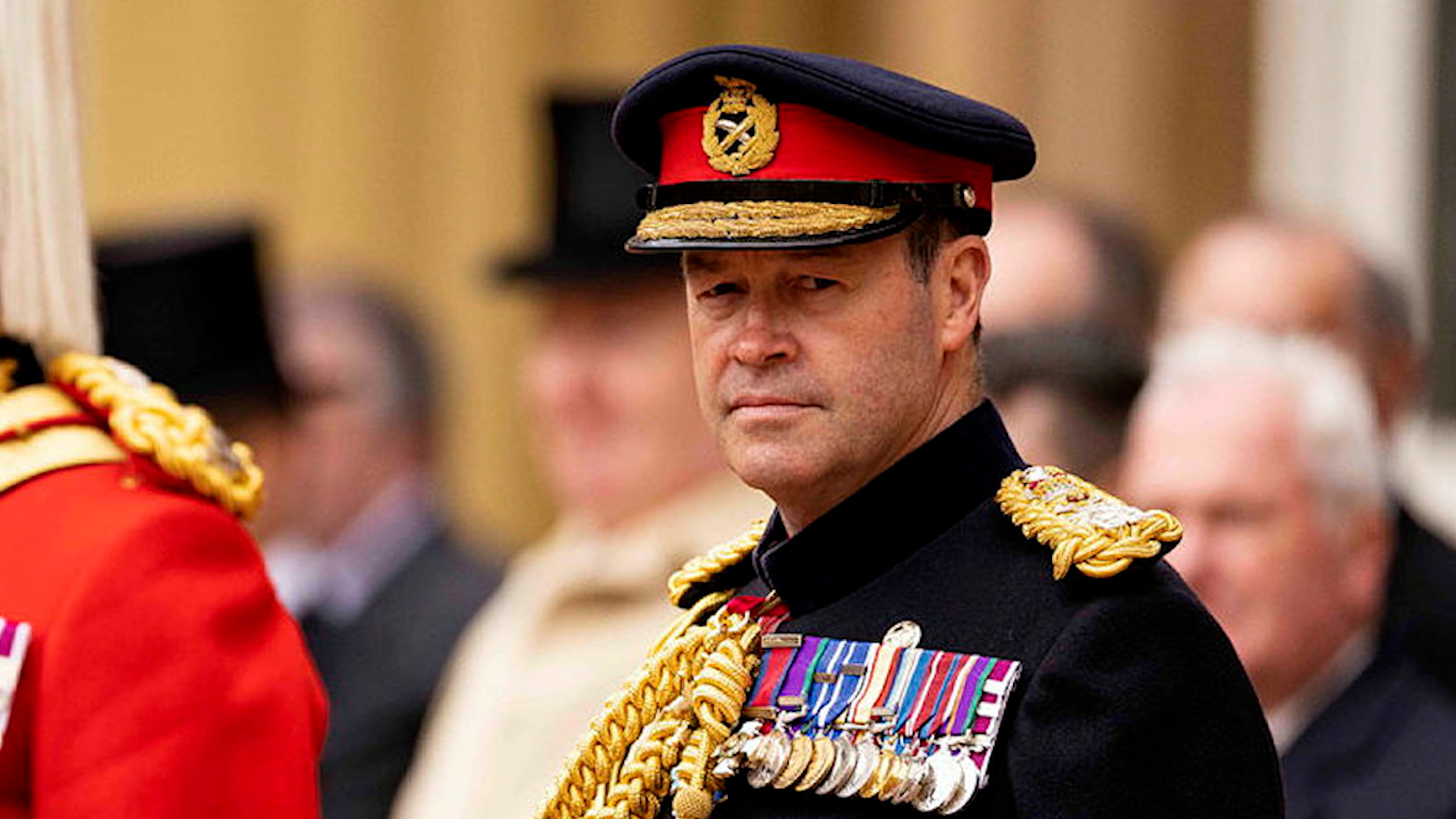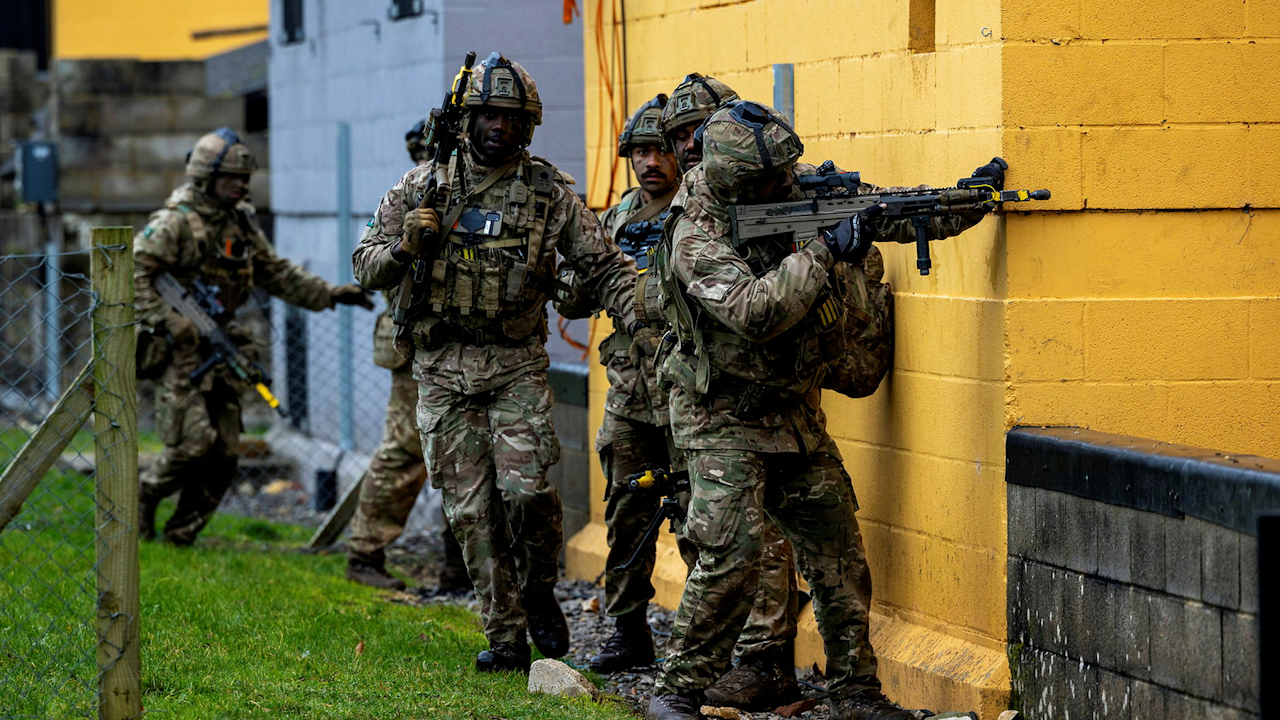
Army chief was right to speak about citizen army – he wants Gen Z prepared for darker days

Retired Army officer and former defence attache Anton Gash discusses the CGS's speech and what it means for Gen Z.
Last week's discussions about conscription, following Chief of the General Staff General Sir Patrick Sanders' speech at the International Armoured Vehicles conference, have been fascinating.
My first observation is that these discussions have conflated, and I would say somewhat confused, three entirely separate issues: wartime conscription, or the draft, reserve liability and national service.
First, let's look at conscription.
The Government's disavowal of CGS's ideas seems to be misplaced.
What Patrick was clearly talking about was an emergency measure as part of a war of national survival, much like the imposition of call-ups in World War One and World War Two.
As Professor Michael Clarke described it on the Sitrep podcast, that’s our normal national response to such crisis and nobody should actually be surprised.
What CGS was saying is that since we've been in a happy position since 1945 of not being in a war of national survival, National Service continued into the early 1960s for other reasons, largely colonial small wars that signalled the end of the empire, the Red Menace, the Cold War and so on.
But because of being in that happy position, society has pretty much lost its link to that sort of thinking.
What Patrick was saying is that Gen Z now needs some mental preparation for the possibility of darker days ahead.

That is even if the Doomsday clock didn't move last week as some have anticipated closer to midnight.
Regarding reserve liability, that sort of comes as no surprise to any of us who have served in the regular forces.
Terms and conditions of service are very clear that upon departure of the Armed Forces individuals retain some obligation to make their skills available for the country should the situation require it.
Now the duration and nature of that commitment varies from service to service and role to role, but it is simply part of the deal that comes with the job.
Think of it as a return on investment in some ways.
The training and education received throughout a career all for that final salary public sector pension that excited so much debate.
Then there are of course checks and balances that prevent the compulsion of those who are physically or mentally unsuitable for recall. And there are exemptions when appropriate.
Much like the system that allows employers to seek exemptions for reservists who are called up if the impact on their civilian role would be excessive.
Finally, let's take another look at national service.
Because this is what I think many commentators got spun up about when CGS's speech was reported. But it's also exactly what Patrick was not talking about.
Funnily he and I were adjutants at the same time when we were young captains. He to a battalion of the Royal Green Jackets and me at an Army recruit training regiment.
And believe me it was quite enough of a challenge to process and motivate volunteers through the pipeline of training, preparation and induction, let alone think about a potential cohort of sullen pressed men and pressed women.
The Army's argument, as Professor Clarke said last week, has always been that our entire military constitution since the 17th century has been based on the concept of a volunteer professional army other than the two short periods of conscription that he outlined.
The Army remains proud of that professionalism and in my experience has always been a little bit snooty about conscript armies elsewhere, and the Army would not want that diluted.
Going back briefly to my Army training regiment, the other problem is the sheer number of trained personnel who would be required to man and service a conscript training organisation of any scale would remove from the frontline those experienced and professional soldiers who were exactly the people we rely on in conflict.
Think back to Windsor Davis in It Ain't Half Hot Mum as the hardnose professional Sergeant Major forced to babysit a bunch of entertainers when what he actually wants to be doing was taking the fight to the enemy in the jungles of Burma.
Patrick Sanders doesn't need me to interpret his words. He was clear, incisive and direct.
But the level of coverage and debate since his speech shows what an emotive issue this is and why he's right to insert it now into our national dialogue.









